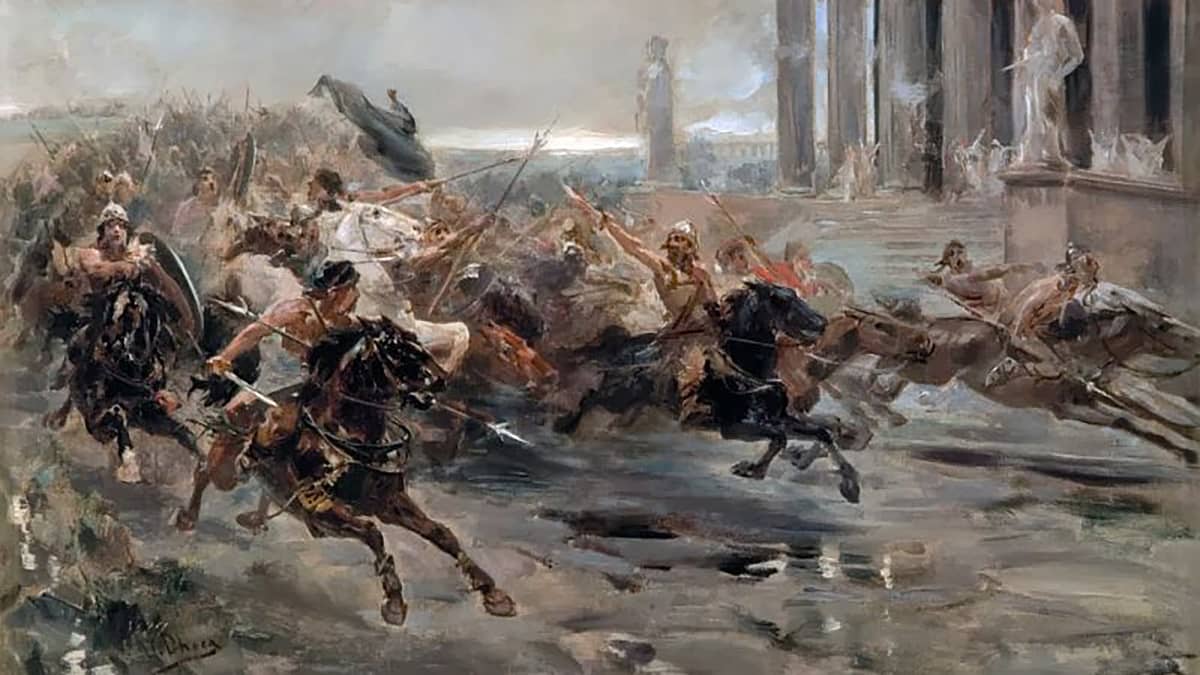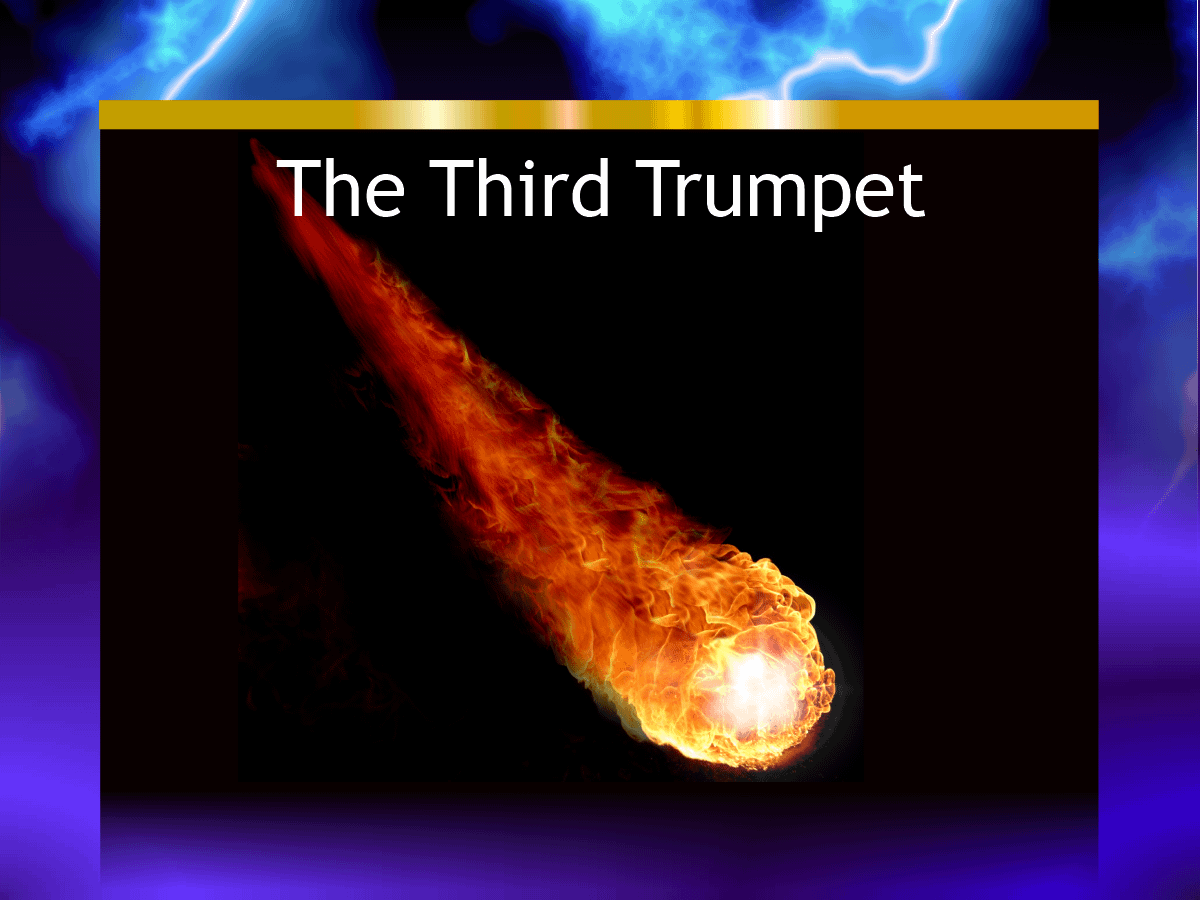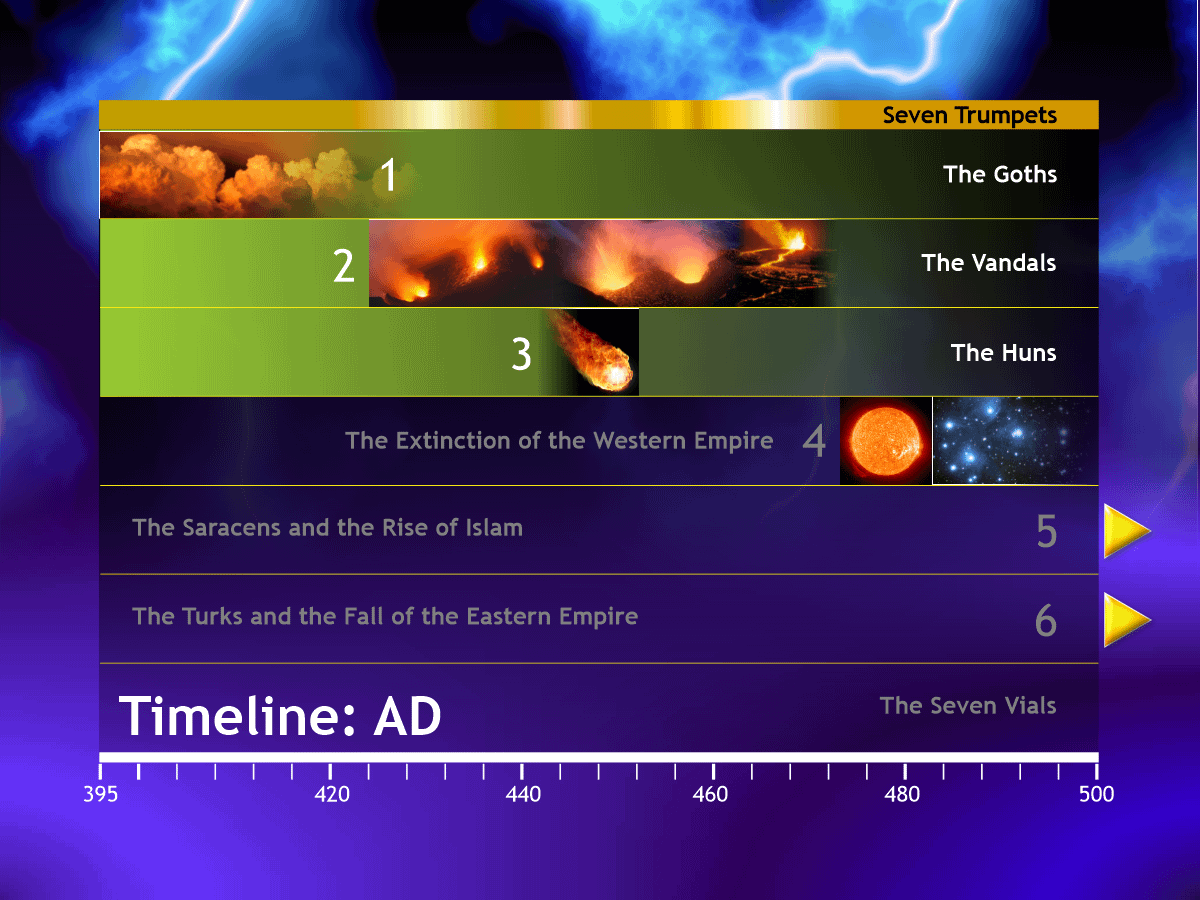Prophecy
Revelation
The Third Trumpet
Attila and the Huns
The star falling on the rivers
Circa AD 451 –
And the third angel sounded, and there fell a great star from heaven, burning as it were a lamp, and it fell upon the third part of the rivers, and upon the fountains of waters; And the name of the star is called Wormwood: and the third part of the waters became wormwood; and many men died of the waters, because they were made bitter.
A name of infamy and cruelty – Attila the Hun – appears in the riverlands and alpine areas of the Western Empire. His army brings destruction, misery, and fear.
The third wave of invaders brought the Huns under Attila. Attila attacked the riverlands of the Western Empire along the Danube and the Rhine. Though turned back he returned to sack the Italian Alps. He was particularly cruel and his name is infamous for the bitter state he left behind him.
For more detail, read the extracts below…
The Visions of Daniel and the Revelation Explained
E.P. Cachemaille, c.1917A simple but comprehensive summary
Download the book
Daniel and the Revelation
Joseph Tanner, 1898Written as a comparison of the Historicist and Futurist interpretations
Download the book
Horae Apocalypticae
E.B. Elliot, 1862, Fifth EditionThe standard Historicist work – a detailed and thorough exposition in four volumes
Download the book
































